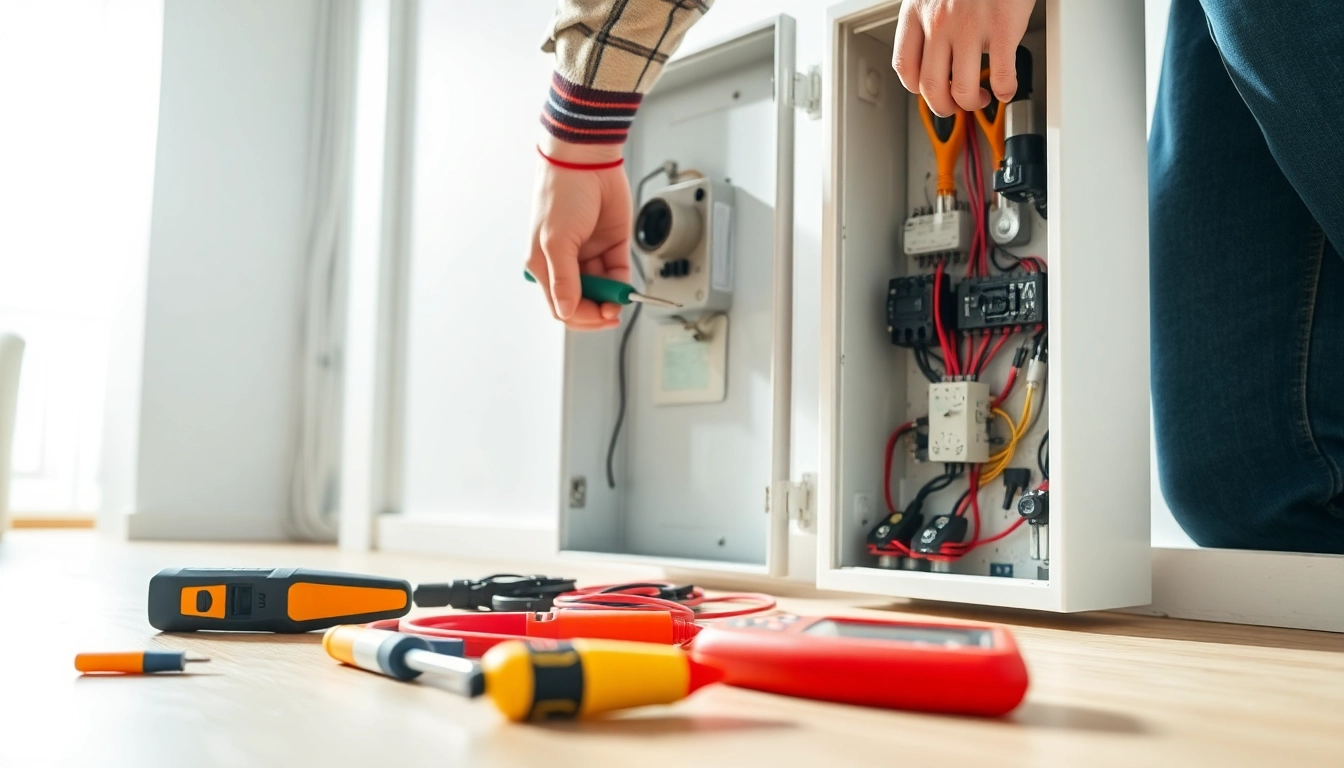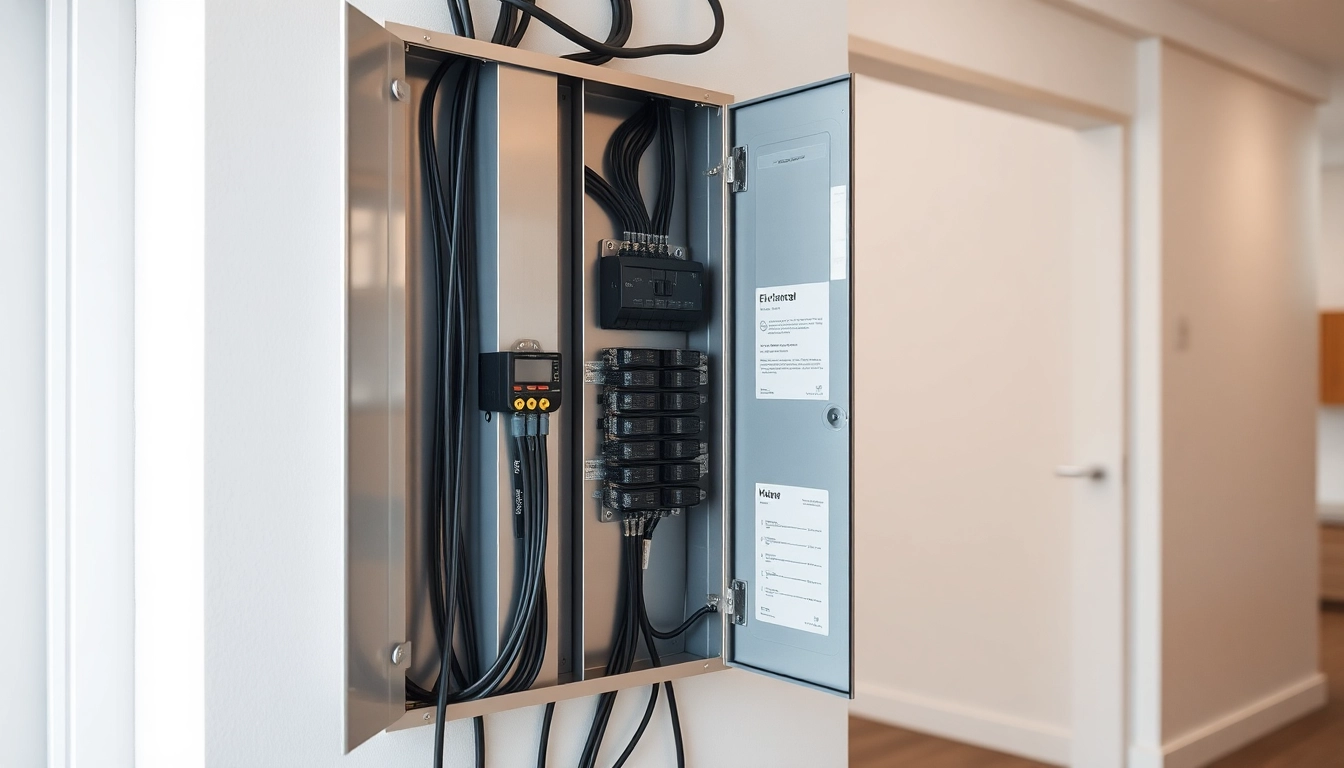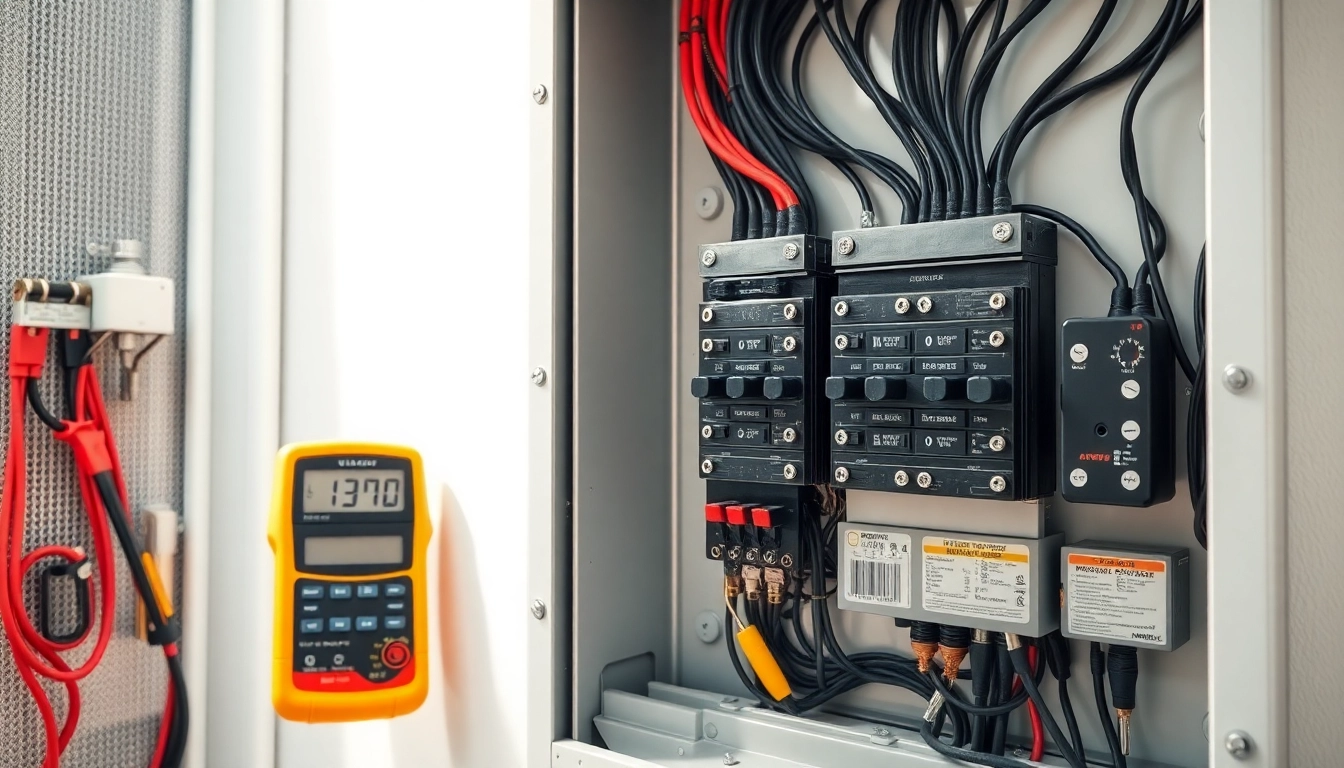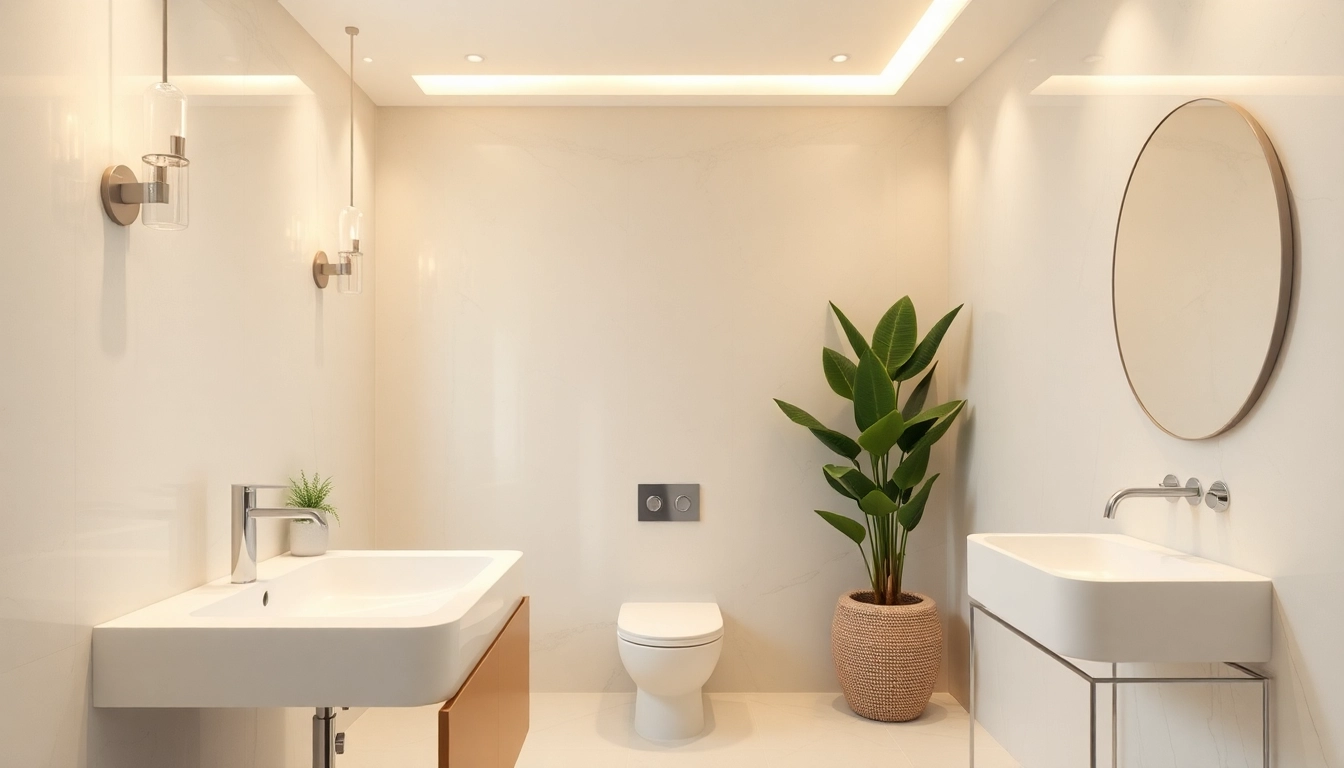Understanding the Electrical Panel Upgrade Process
What Is an Electrical Panel and Its Role?
An electrical panel, often referred to as a breaker box or fuse box, serves as the central hub of your home’s electrical system. It distributes electricity from the main power source to various circuits throughout the home, protecting the circuits from overloads and short circuits through circuit breakers or fuses. Understanding the role of an electrical panel is crucial not only for household safety but also for optimizing electrical performance and efficiency. If your home’s electrical setup is outdated or undersized for your current needs, it may be time to consider an Electrical Panel Upgrade.
Signs Your Electrical Panel Needs an Upgrade
Recognizing the signs that your electrical panel requires an upgrade is essential for preventing safety hazards and ensuring your home meets modern electrical needs. Here are several indicators:
- Frequent Tripping of Circuit Breakers: If your breakers trip frequently, it suggests that your current electrical panel cannot handle the demand placed on it.
- Dimming or Flickering Lights: This often indicates that the electrical panel is overwhelmed and is unable to supply consistent voltage.
- Burning Smell or Discolored Breakers: Any burning smell or discoloration signifies overheating, which is a severe safety hazard.
- Older Equipment: Homes built before the 1970s may not have adequate electrical systems, often limited to 60 amps, while today’s standards commonly require 100 to 200 amps.
- Renovations or Major Electrical Additions: If you’re adding new appliances—like an electric vehicle charger—or upgrading to energy-intensive devices, an upgrade may be necessary.
Basic Steps in the Upgrade Process
Upgrading your electrical panel involves several critical steps to ensure safety and functionality:
- Consult a Licensed Electrician: Engage a qualified electrician to assess your current panel and discuss your specific needs.
- Obtain Necessary Permits: Most localities require permits for electrical upgrades, so checking local regulations is crucial.
- Choose the Right Panel Size: Determine the appropriate amperage based on your household needs—typically 200 amps is considered sufficient for most modern homes.
- Professional Installation: The electrician will remove the old panel and properly connect the new one, ensuring that all local electrical codes are followed.
- Inspection and Testing: After installation, the panel must be inspected to ensure it meets safety standards before being put into full operation.
Benefits of Upgrading Your Electrical Panel
Increased Safety and Compliance with Codes
Safety is one of the most compelling reasons for upgrading an electrical panel. Older panels may not comply with current electrical codes, increasing the risk of fires or electrical shock. Modern panels are designed with built-in safety features, such as surge protection and better circuit overload handling, making them far more effective in ensuring a safe home environment.
Enhancing Electrical Capacity for Modern Needs
As technology advances, so do the electrical demands of our homes. From smart home devices to high-capacity appliances, a modern electrical panel can accommodate significant increases in power needs. An upgrade often means greater amperage, allowing more circuits and devices to operate simultaneously without tripping breakers or risking overloads. This capability enhances convenience and is essential for households with multiple power-hungry devices.
Potential Increases in Your Property Value
Upgrading your electrical panel can also enhance your home’s value. When prospective buyers see a modern electrical system, it assures them that the home is safer and more energy-efficient, potentially leading to higher offers. Moreover, having a new panel can be a significant selling point as it signifies lower future maintenance costs and fewer upgrades needed.
Cost Factors Associated with Electrical Panel Upgrades
Average Costs and Price Ranges
The cost to upgrade an electrical panel can vary widely depending on several factors, including the area you live in, the age and current condition of your system, and the amperage of the new panel. Typically, homeowners can expect to pay anywhere from $800 to $4,000 for a panel upgrade. The most common upgrade—from a 100 amp to a 200 amp panel—averages around $1,300 to $3,000.
Understanding What Impacts Your Costs
Several elements can impact the total cost of an electrical panel upgrade:
- Panel Type and Amperage: The cost usually increases with the amperage; therefore, opting for a higher capacity will affect the final price.
- Labor Costs: Electricians may charge different rates based on experience, complexity of the job, and local labor rates.
- Permitting and Inspection Fees: The requirement of permits and inspections will add to your overall costs.
- Location: Costs can differ significantly depending on local market rates and demand.
- Additional Repairs or Upgrades: If your wiring needs to be updated or other electrical components require replacement, these factors will increase your overall expenses.
Available Financing Options and Grants
Fortunately, many homeowners can access financing options to help offset the costs of an electrical panel upgrade. Some local jurisdictions also provide grants or rebates for energy-efficient upgrades, particularly if you’re installing new systems alongside renewable energy sources, like solar power. Exploring government incentives or financing options can help make this significant investment manageable.
When Is the Right Time for an Upgrade?
Assessing Your Current Electrical Needs
Regular assessment of your electrical system is essential in determining when an upgrade is necessary. If your home has experienced changes such as the addition of new family members, significant renovations, or new appliances, these factors can all create increased demand on your electrical system, warranting a review of your panel’s capabilities. Additionally, personal habits, like more frequent use of outdoor equipment or entertainment systems, may indicate a need for enhanced capacity.
Seasonal Considerations for Electrical Projects
Seasonal changes can affect when is best to complete electrical upgrades. Generally, spring and early autumn are ideal times to schedule electrical work, as the weather is usually favorable and accessibility is easier prior to winter usage. Planning ahead for summer air conditioning or holiday light usage also is prudent, giving ample time to complete necessary upgrades before peak demand seasons.
Long-term Planning for Future Upgrades
Consider not only current needs but also future aspirations when planning for an electrical panel upgrade. Proactive planning involves accounting for potential developments like home expansions or new technology integrations. Consulting with professionals can help assess your future power needs to ensure that your upgrade satisfies long-term goals without additional costly modifications later.
Choosing the Right Professional for Your Upgrade
Qualifications to Look for in an Electrician
Finding the right electrician is critical for a successful panel upgrade. Key qualifications to consider include:
- A valid license and insurance coverage to ensure safety and legality of their work.
- Experience with panel upgrades and an understanding of local electrical codes and regulations.
- Positive reviews and testimonials from previous clients that demonstrate reliability and quality of service.
- Strong communication skills and willingness to explain the upgrade process and maintenance tips.
Getting Estimates and Comparing Options
Once you have identified potential electricians, obtaining multiple estimates is advisable. Each estimate should detail labor costs, materials, and estimated timelines. When comparing options, ensure you’re comparing similar services. This will help you gauge a fair market price while also giving you insight into the scope of work proposed by different professionals.
Ensuring Compliance with Local Codes
Electrical work must comply with local codes to ensure safety and functionality. Before commencing work, verify that your chosen contractor is familiar with local regulations. Additionally, secure the necessary permits for the work being performed to avoid legal issues or safety hazards. Failure to comply with local codes can lead to severe penalties, as well as compromising the safety and insurance of your home.















Leave a Reply